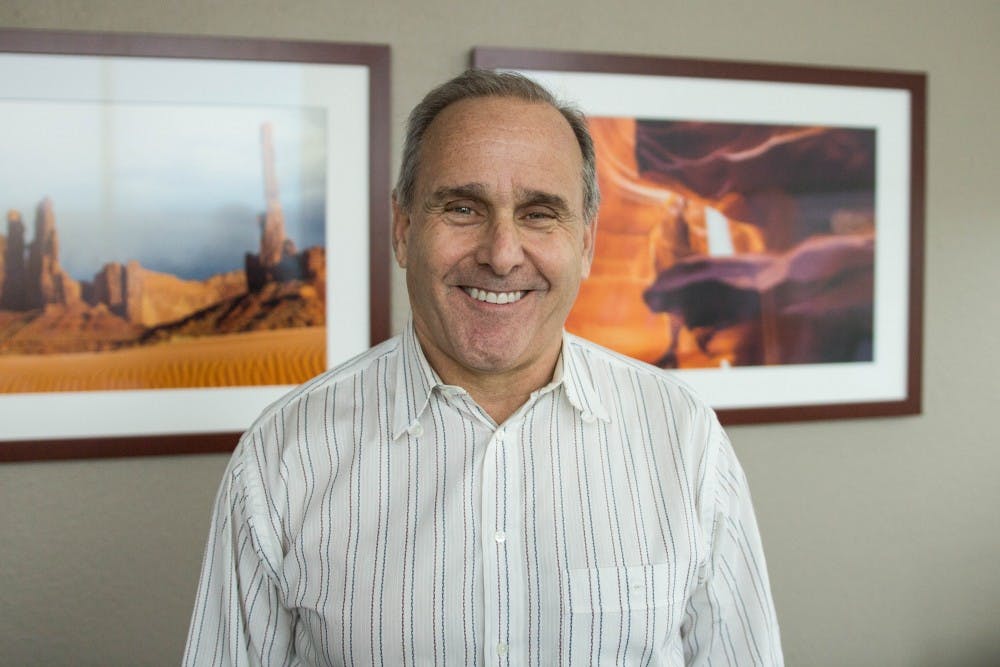ASU’s independent student-organized TEDx event returns to campus this year with talks on subjects including brain implants, singularity, the human addiction to plastic and the militarization of space.
Here is a preview of the speakers who will be at ASU Gammage on Monday, March 25:
Brain Implants: Hope or Hype — Katina Michael:
From therapy to entertainment, to the technological singularity — a recent hire to the School for the Future of Innovation in Society opens a window into the endless possibilities, dangers and uncertainty of brain implants at ASU’s TEDx event.
“I'm looking at how they are presently being used and why they are being used,” Michael said. “For example, a person suffering from Parkinson's disease, Tourette syndrome, or dystonia — when they become resistant to drugs and pharmaceuticals — will opt for this procedure as a last resort because it’s the only hope they have of having some quality of life."
Michael will also explore a future where implants are used beyond therapeutics for entertainment, and eventually, the possibility of uploading our own consciousness to technology.
“We don't know the long term effects of being disembodied," Michael said. "But I'm arguing at the end of my talk that to some degree we have already been disembodied by the technological interventions we are using, whether it's smartphones or, whether it's our social media, we have less physical contact with those we love and we have more contact with inanimate objects even if we're using them as vehicles of communication. So this decrease in face-to-face is going to cause problems.”
Mugshots of Cancer – Joshua LaBaer:
LaBaer, the director of ASU’s Biodesign institute, will speak about a critical new piece of technology that will help screen for different types of cancer earlier in the progress of this disease.
Dubbed "Mugshots of Cancer," his talk's topic is about a way of using the body’s own surveillance to help us find cancers early.
"The body produces antibodies in the bloodstream and these are, if you will, a molecular version of a database of mugshots," he said. "Antibodies recognize what don’t belong in the blood system much like a video surveillance system might have triggered images of known felons in it. What we do is we find a molecular way to look in peoples blood to identify which pictures correlate to cancer villains.”
LaBaer will also talk about the public applications of the technology and what it means for the future of cancer screening and research.
Is a Space Future without Conflict Possible? – Timiebi Aganaba-Jeanty:
In the year of the 50th anniversary of the first moon landing, assistant professor in the School for the Future of Innovation in Society Timiebi Aganaba-Jeanty will address about the future of space and how geopolitics could play out in the next human frontier: space.
“It is a timely topic right now because we are coming to the crossroads with the rhetoric around space whether it is a war-fighting domain or whether it should be kept a sanctuary where we don't weaponize or take earthly geopolitics into space,” Aganaba-Jeanty said. “We are at a crossroads because U.S. policy says basically that adversaries have created this scenario where space is a war-fighting domain where the U.S. has to respond by being dominant in space The effect of this is that people have to figure out how they should react. Do they also have to be defensive? Or also decide to have that attitude?”
Aganaba-Jeanty will also “be introducing the audience to some international perspectives from space.”
Plastic Hangover – Rolf Halden and Charles Rolsky:
Halden, the director of the Biodesign Center for Environmental Health Engineering, will join Rolsky to speak on the slow-moving man-made disaster of plastic pollution, exploring the strange human addiction to it — and theorizing how we can stop it.
“We will focus on plastic pollution within and around us,” Halden said in an emailed statement. “The talk will explore how we got to where we are right now, with plastic constituents being detectable in the urine and blood of essentially all people in the developed world, and we will explore opportunities to overcome this global problem of plastic pollution and the associated human health impacts.”
Rolsky will focus on the perception of plastic as a whole.
“We are surrounded by all the information these days pertaining to why it's not a good thing but for some reason, people do not change their habits so we are thinking about all this as an addiction,” Rolsky said. "We are interested in people’s emotional connections and exploring why if someone sees a picture of a bird that had died due to plastic ingestion and there’s a straw in his stomach, people are disgusted ... Why is it that they see a straw at the store and they don’t care? We are looking at that to change people's perspectives so they don't keep buying it and the cycle keeps happening for years."
Creating a Modern Community without Complicating it – Sha Xin Wei:
Other speakers include the Director of the School of Arts, Media and Engineering, Sha Xin Wei, who will be speaking about the transition in technology from “the epoch of “i-Tech” (Apple) to social tech (Facebook) and now to eco-tech,” he said in an email.
"In Synthesis, we’re harvesting 15 years of experience creating responsive environments inspired by living ecosystems to learn how to enrich but not complicate our environments — our homes, parks, streets and cities.”
Other speakers will include Victoria Gilchrist, an ASU graduate with a master’s in sustainability, Ashwini Chhabra, the head of public affairs at Bird and director of ASU's School of Arts, Media and Engineering and Stephen Lockhart, an ASU undergraduate computer science student.
Reach the reporter at isaac.windes@asu.edu or follow @isaacdwindes on Twitter.
Like The State Press on Facebook and follow @statepress on Twitter.




